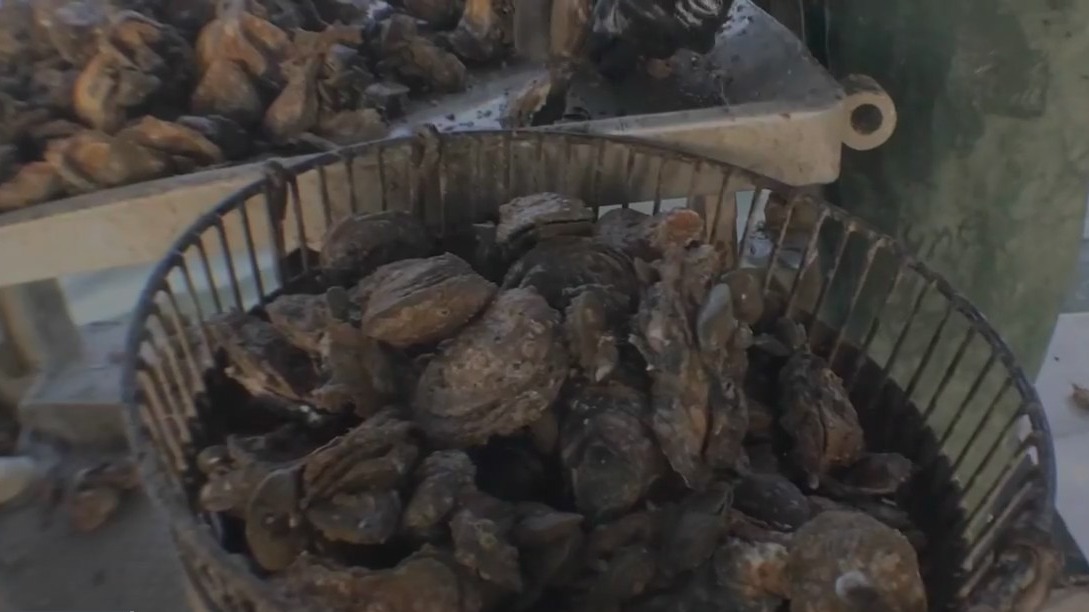Texas oyster season begins with severe restrictions for fishermen

Oyster fishermen says harvest limit threatening livelihood
Texas Parks and Wildlife Department has voted to close three bays near Matagorda Island to oyster fishing. FOX 26's Tom Zizka talks with local oystermen about how the decision is affecting their business as the season approaches.
HOUSTON - The six-month Texas oyster season opened on Nov. 1 and Texas Parks and Wildlife Commissioners have voted to permanently close three bays near Matagorda Island to oyster fishing.
The decision is the latest in a trend that the multi-million dollar industry says is threatening their livelihood. Just days into the season, oyster boats sailed in from Galveston Bay full of fresh oysters, but they are not sure how long that will last.
ANIMALS: Seeing, listening to birds can improve mental health, study finds
Gezim Halili of Prestige Oysters says the hours-long harvest may be the best the season has to offer," It's gotten worse, I feel like the shackles just got tighter."
Before sunrise, a fleet of 20 boats left the Prestige Oyster docks in San Leon with each crew hoping to come back with a full limit of 30 sacks of oysters destined for restaurants and markets in days.

Long-time volunteers say Harris County Animal Shelter Interim Director making false statements about some animals
FOX 26 Reporter Randy Wallace spoke with the volunteers about what they've seen regarding the Harris County Animal Shelter.
Like every other November, oystermen sail to one of 29 public oyster areas managed by the state to collect the day's harvest. However, this year only nine of those areas are open statewide and just three on Galveston Bay.
BUSINESS: Elon Musk now in control of Twitter, fires top executives, AP sources say
The state says the closed areas need time for existing oysters to mature. In a press release the Texas Parks and Wildlife Department says, "Over time, a variety of environmental factors and localized harvest pressures have greatly impacted this valuable natural resource across the entire Gulf Coast."
Halili and other oyster fishermen believe the state can do a better job of measuring the available crop, "Texas is thriving. There's never been more baby oysters than I've seen in 20 years."

Texas oyster company recognized
San Leon oyster company, Prestige Oysters is the only sustainable oyster fishery in all the Americas, and one of only six in the world, certified by the Marine Stewardship Council.
They insist they take pains not to over-harvest the reefs as a protection to their livelihood, and dispute the state's claims that there are not enough mature oysters in Texas waters. They believe the reefs that are left undisturbed may actually suffer in the long run.
SUGGESTED: Photos: Flying squirrel found swimming inside Virginia couple’s toilet
"Those reefs need to be turned over, because those baby oysters will get silted-over, and the silt is heavy," says Halili, "It's not gonna' let them open up to eat what they need, and you need to take those mature oysters out of there, to not restrict the food to the baby oysters."
The state's oyster industry says it would like to work with state regulators, to streamline the process of where and when oysters can be harvested, to ensure the reefs stay healthy, and they can stay in business. There's not a lot of confidence, along the oyster docks, that such a conversation will happen anytime soon.

